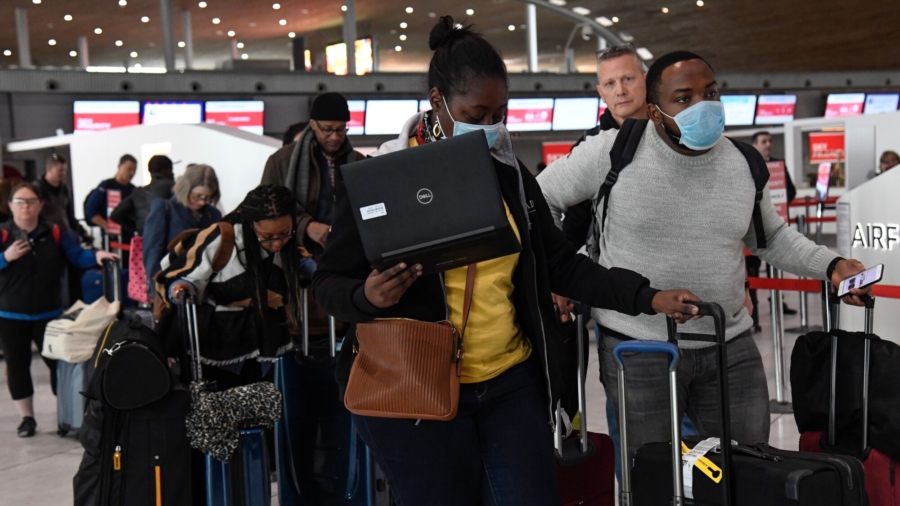The European Union (EU) will no longer require passengers and crew members to wear masks onboard flights and at airports from May 16 as the continent looks to ease CCP virus restrictions, authorities announced Wednesday.
“From next week, face masks will no longer need to be mandatory in air travel in all cases, broadly aligning with the changing requirements of national authorities across Europe for public transport,” said Patrick Ky, the executive director of the European Union Aviation Safety Agency (EASA).
In a joint statement, EASA and the European Center for Disease Prevention and Control (ECDC) confirmed the new recommendations are set to come into effect on May 16, noting that rules regarding masks may continue to vary by airline beyond that date if they fly to or from destinations where the rules are different.
ECDC Director Andrea Ammon said cabin crew should remain cautious and inform passengers of any required measures in a timely manner, as rules can still vary in departure and destination locations.

“The importance of these measures should continue to be effectively communicated to passengers for their safety, and ECDC will continue to work with our colleagues at EASA to regularly assess and amend the recommendations as necessary,” Ammon said.
The mask mandate on planes and at airports in the EU has been in place for about two years and has led to conflicts between passengers and airlines across the continent.
Ky said travelers should respect the choices of others around them and behave responsibly, explaining that if a passenger is “coughing and sneezing,” that person “should strongly consider wearing a face mask, for the reassurance of those seated nearby.”
The two agencies said the health protocol update is a big step forward in the normalization of air travel across Europe and it takes into account the latest developments in the COVID-19 pandemic, such as a growing number of European countries lifting CCP (Chinese Communist Party) virus restrictions, naturally acquired immunity, and vaccination levels.
“While mandatory mask-wearing in all situations is no longer recommended, it is important to be mindful that together with physical distancing and good hand hygiene it is one of the best methods of reducing transmission,” said Ammon, noting that aircrew should avoid imposing distancing requirements on passengers because they “will very likely lead to a bottleneck … especially if they are not required at national or regional level in other similar settings.”
The change comes about one month after a Florida judge struck down a similar mandate in the United States, saying the U.S. Centers for Disease Control and Prevention’s mask rule exceeded the agency’s statutory authority because its implementation violated administrative law.

